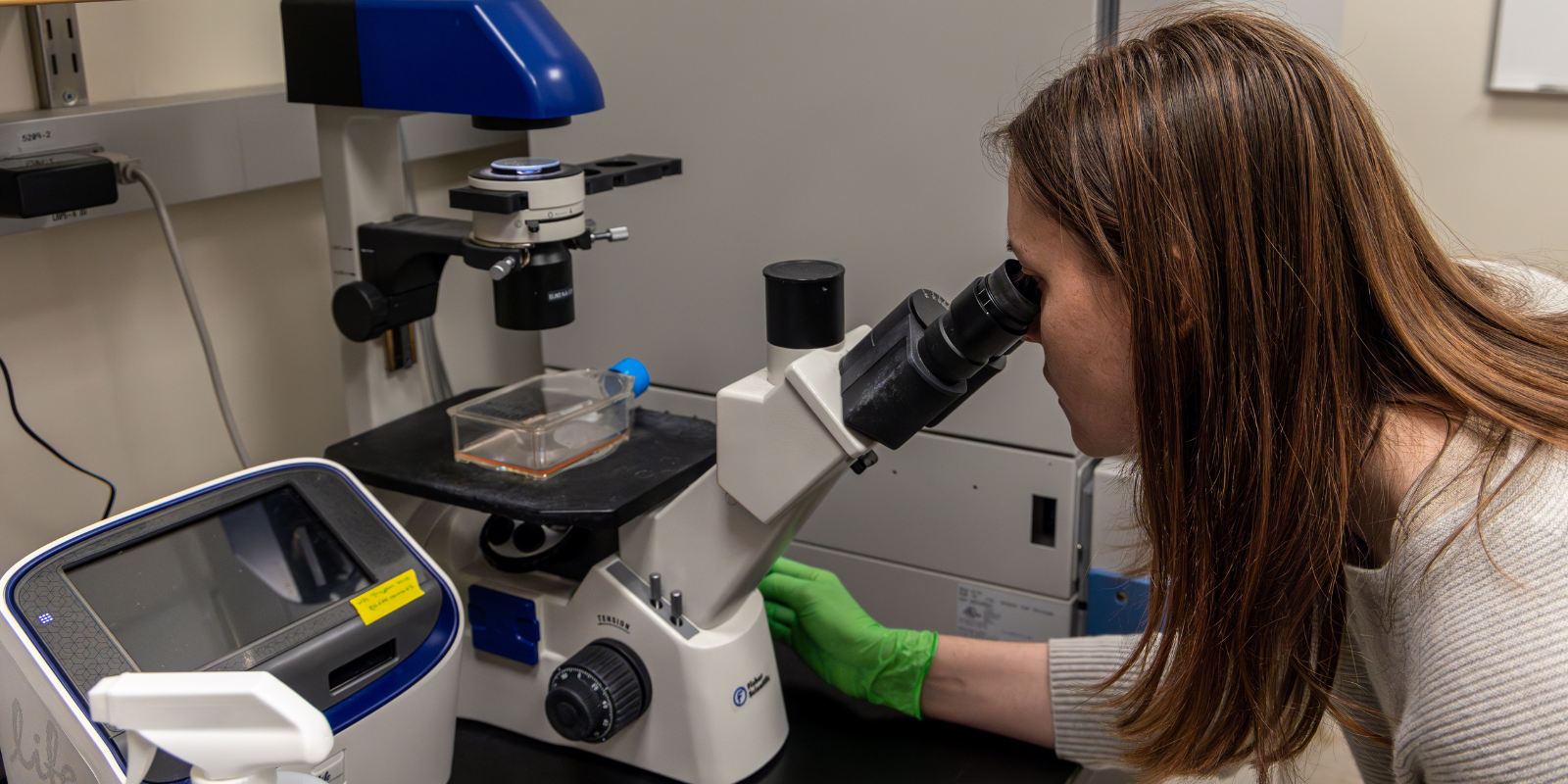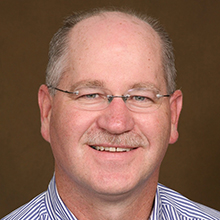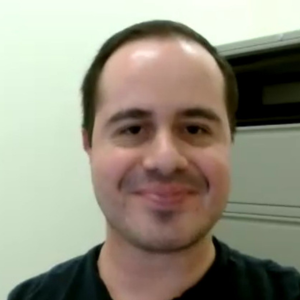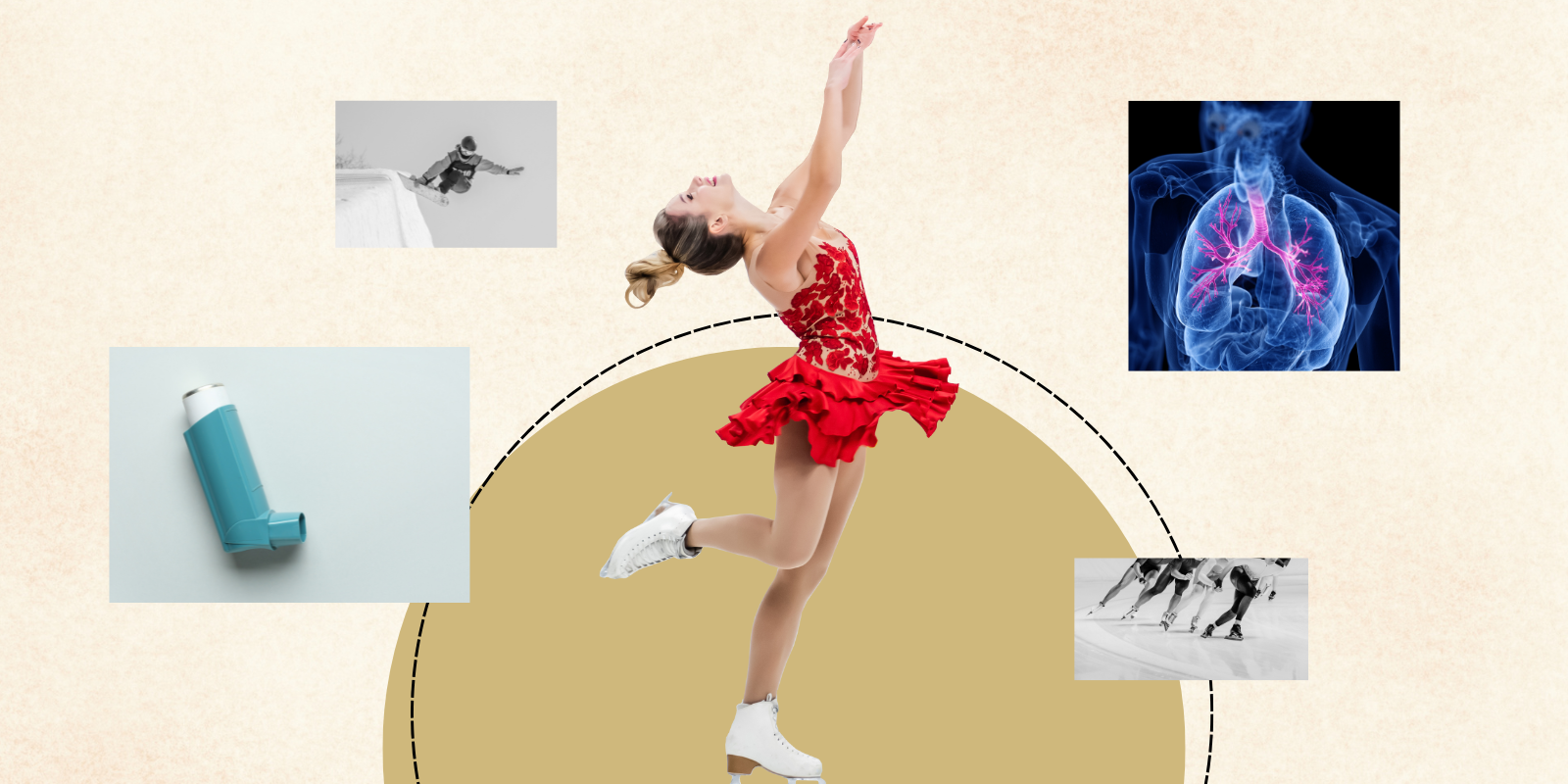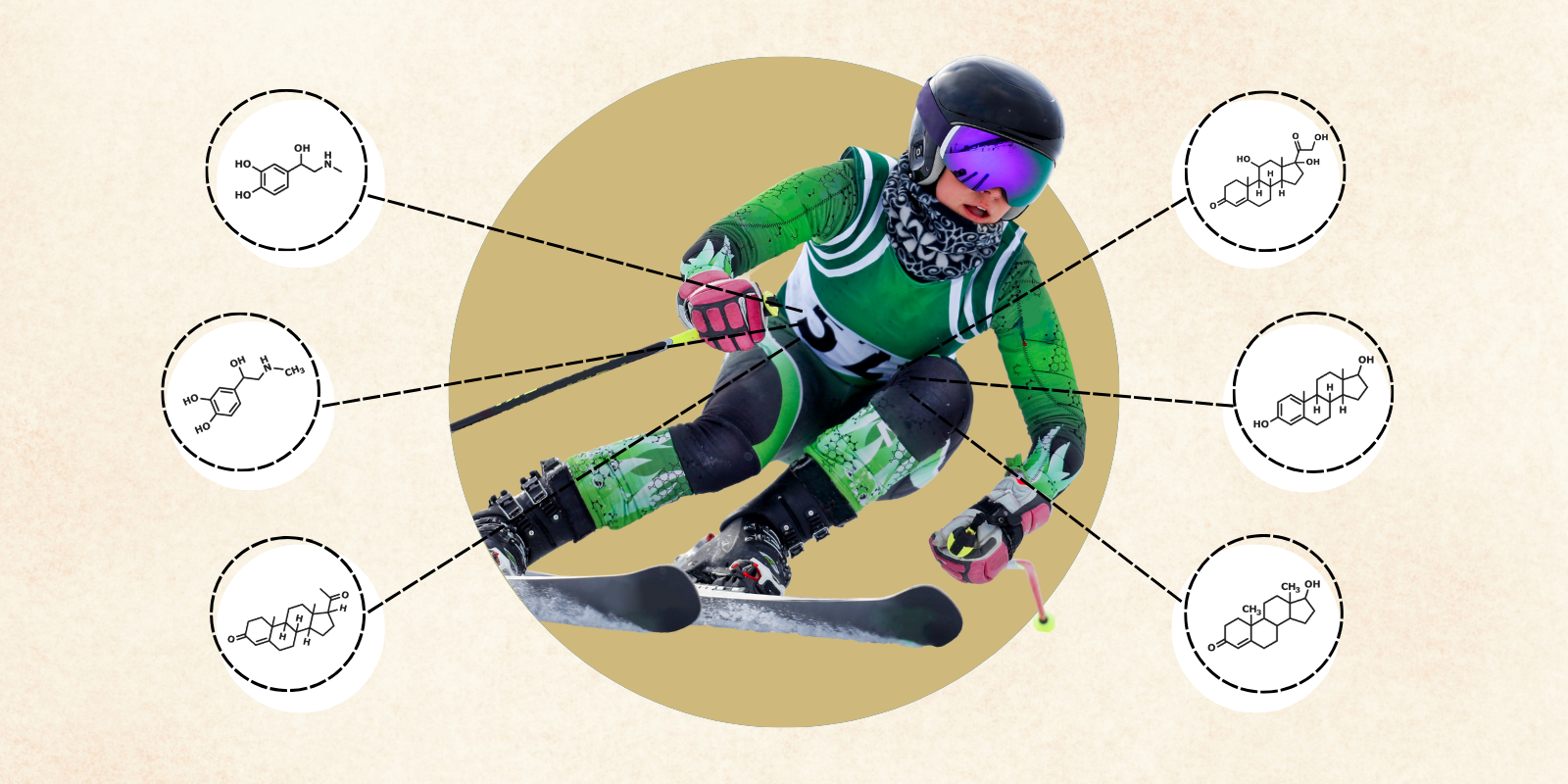A new program of the University of Colorado Department of Medicine enlists generous senior faculty to help support the research of promising junior faculty.
One of the first beneficiaries of the Department of Medicine Scholars Program is Alfredo Ornelas Sanchez, PhD, who was a post-doctoral fellow in the lab of his benefactor, Sean Colgan, PhD, a distinguished professor in the CU Division of Gastroenterology and Hepatology.
Ornelas is now a junior faculty member in the division. The scholarship will support his investigation of potential therapies for inflammatory bowel disease.
Under the program, a senior faculty member agrees to provide $10,000 a year for two years, and the Department of Medicine pays $15,000 each year, for a two-year total scholarship of $50,000. Each scholar is selected by a committee within division leadership.
“This is a very unique program. I haven’t seen another university do something quite like this,” Colgan says. “What it comes down to is, you get to the point where you want to give back to the people who have been good to you, and this place has been really good to me.”
The program targets mid K-level to early R-level faculty, a transition phase in an academic researcher's career, moving from mentored research (K-level) to the early years of obtaining independent research funding (R-level).
“Mentoring is a really important part of our job and our life,” Colgan says. “And this is a really good way to provide opportunities for young people.”
He adds: “When people come to visit Colorado, I always say there’s a frontier spirit here that’s held for 150 years. You help your neighbors. That’s what it comes down to.”
‘A bit of a jump start’
The Scholars Program’s leader is Bryan Haugen, MD, a professor in the CU Division of Endocrinology, Metabolism and Diabetes and the Department of Medicine’s director of philanthropy.
“There are many vulnerable points along the line in academic research, usually for faculty in the later assistant professor to early associate professor stage, who have had success in research but may need a bit of a jump start so they can move in a new direction, broaden their portfolio, or start new collaborations,” Haugen says. “Things like that can really help launch them academically.”
So far, 11 scholarships have been awarded. Haugen says the vision for the program going forward is to have two or three scholarship recipients each year for each division.
He says the program was the idea of department Chair Vineet Chopra, MD, MSc, and has been under development for the last year. “We built the concept, talked to the division heads, and then put out the call. Now we have people like Sean Colgan jumping forward and saying, ‘I want to do this.’ I give Dr. Chopra and the department credit for saying they’ll overmatch these gifts to make sure we can move this forward.”
As the Department of Medicine’s point man on philanthropy, Haugen expects the program will pay dividends with donors. “When we go outside and talk with grateful patients and others, when they hear about a program like this, where our own faculty is invested in this, that really helps.”
Mild to severe symptoms
Inflammatory bowel disease (IBD), the focus of Ornelas’ work, refers to a group of lifelong diseases that affect different parts of the digestive tract. The body’s immune system mistakenly attacks healthy cells, causing inflammation.
IBD includes Crohn’s disease (which can affect any part of the digestive tract, from the mouth to the anus) and various forms of colitis, most commonly ulcerative colitis (which affects the colon and rectum).
Periodic symptoms of IBD range from mild to severe, commonly including diarrhea, stomach pain, fatigue, nausea, and weight loss. Medicines can help reduce inflammation and allow periods of remission where the disease is not active, but there is currently no cure.
The Division of Gastroenterology and Hepatology treats IBD through its multidisciplinary CU Crohn’s and Colitis Center, and its faculty members conducts basic research on IBD and collaborates in clinical trials of potential therapies.
A new concept
Ornelas was born in the small town of Parral, Chihuahua, Mexico, to a family of university professors. He earned his PhD in organic chemistry from the University of Texas at El Paso.
“I always liked to do chemistry that can be applied in the biomedical field, but I lacked that other side, the biology, so I looked for a postdoc where I could learn these new skills,” he says.
That led Ornelas to Colgan’s lab, which studies mucosal inflammation – involving the soft tissue that lines the body’s canals and organs – with a focus on intestinal inflammation in the context of IBD and other gastrointestinal diseases.
Now, Ornelas draws on his chemistry and biology background to help him find ways to target specific proteins that drive IBD progression. “This is a new concept where you can synthesize compounds that can target specific proteins,” he says. “When these proteins are just too abundant, or they’re doing something wrong, you can get rid of them.”
Ornelas was one of five applicants from his division for the Scholars Program. He was selected by a committee that included division head Jennifer Christie, MD, and several senior faculty members.
“We did not just hand this to Alfredo,” Colgan says. “This is a competitive, merit-based scholarship.”
Ornelas says his new Scholars Program support will help fund expansion of his chemistry capabilities to do the work needed to develop more complex compounds. “Right now we can do synthesis, but we want to establish a more robust chemistry lab that will benefit everyone. So we want to invest in machines and equipment that are needed for this.”
And he is thankful for his mentor’s generosity. “I mean, Sean has been really supportive from day one. I honestly owe much of my success in my young career to him. He is an outstanding mentor, and I will forever be grateful to him.”
